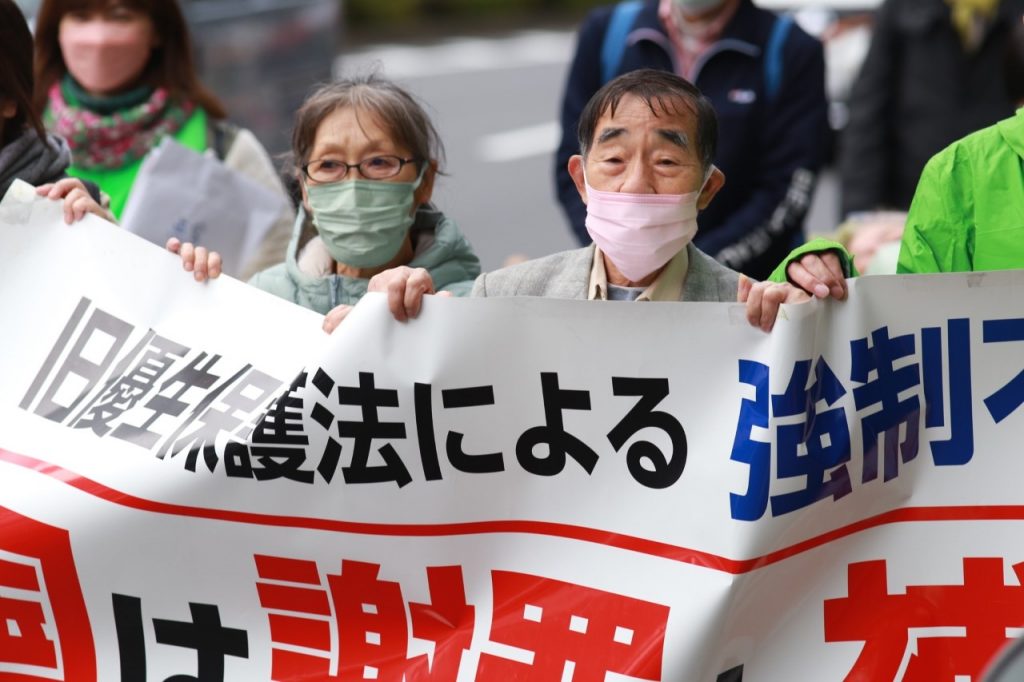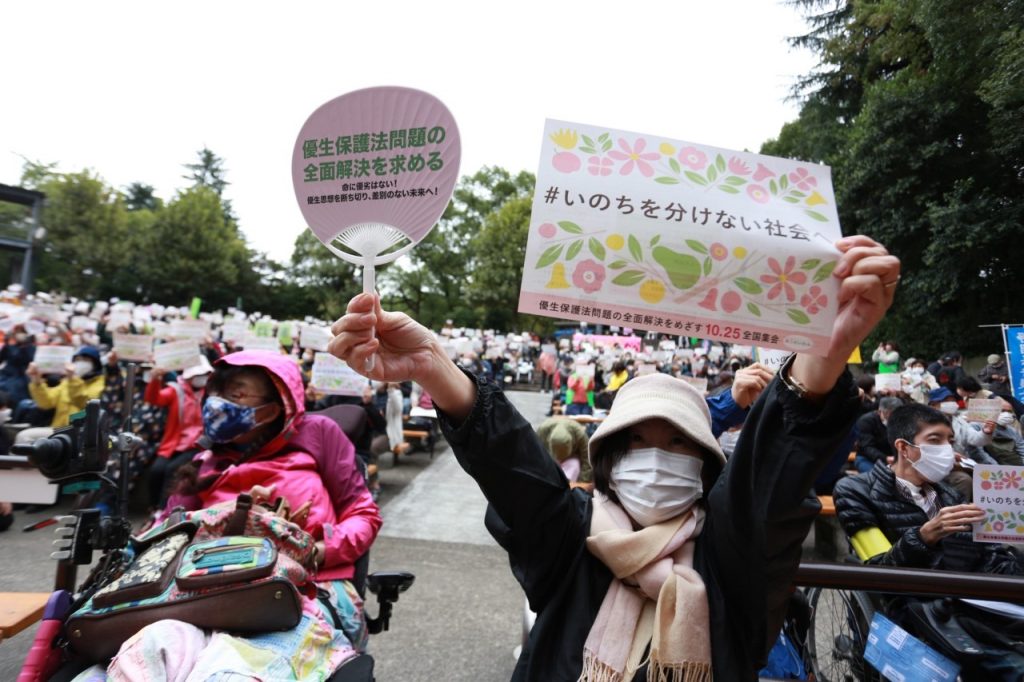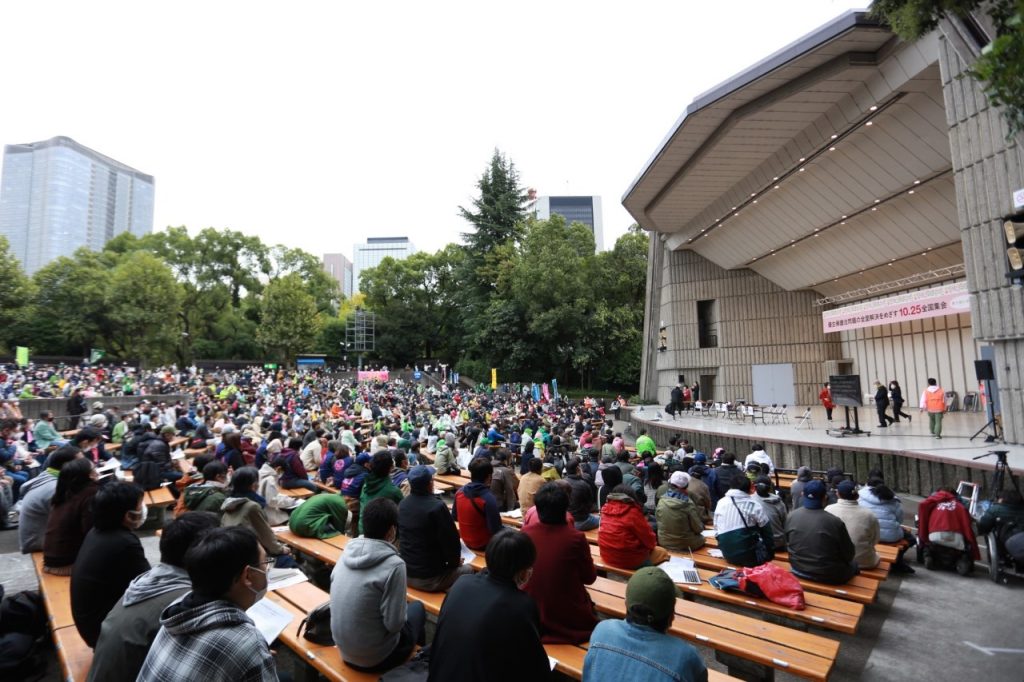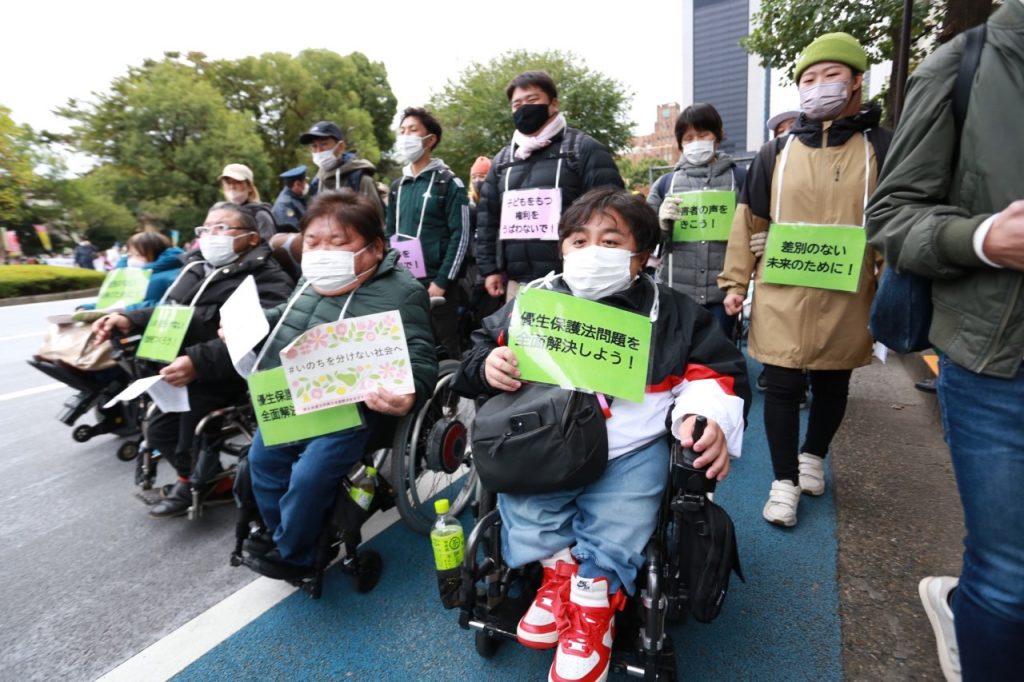







Arab News Japan
TOKYO: About 1,400 disabled people and their families and victims of forced sterilizations joined a national rally held in Hibiya Hall in central Tokyo, on 25 October.
Several members of parliament along with 241 associations for the protection of the disabled took part in a symposium before protestors marched to parliament to demand an apology from the state as well as a guarantee to end discrimination against the disabled. They are also demanding reparation for the victims of such sterilization.
The demonstrators chanted slogans such as: “Do not violate human rights, the country must take responsibility and apologize.”
At present, three trials are taking place with 31 plaintiffs seeking compensation from the state for forced sterilizations, 3 plaintiffs currently being heard at the Tokyo Court and 7 plaintiffs awaiting a verdict in 2023 from the Sendai Court.
The eugenic protection law, passed in 1948, and officially abolished in 1996, allowed the sterilization of patients with leprosy, mental illnesses and other diseases considered heredity, denying them the right to have children.
This law led to more than 16,500 women and men being forcibly sterilized according to a report by researchers from Osaka University but, according to a lawyer representing the plaintiffs, the total number of forced sterilizations was 25,000 as sterilization continued after 1997 despite being against the law that was abolished.
The lawyer also told Arab News Japan that out of the 25,000 only 31 are able to take their case to court as many of the disabled cannot protest.
Other speakers at the symposium pointed to the persistent discrimination against the disabled since the Sagamihara massacre where an employee at a care center for the disabled massacred 19 disabled people and injured 25 others because he felt that the “disabled were a burden on society”.